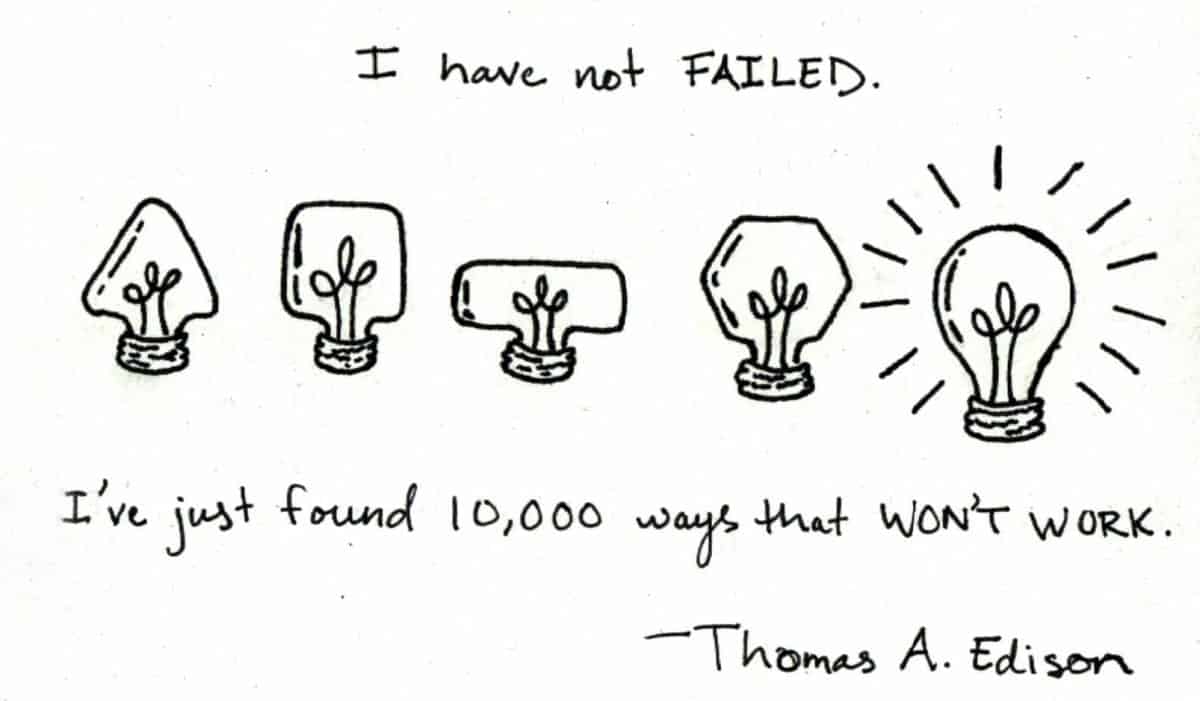
Every client-freelance relationship goes through cycles. You introduce yourself, perhaps do a call, then a contract. The relationships usually end with a successful project completion or… the dreaded client breakup.
You could be the most talented and dedicated freelancer in the world, but there’ll still be an inevitable moment when your services are no longer needed by a high-paying client.
Many freelancers are not mentally prepared for this to happen, and it’s a “make or break” turning point for quite a few of them.
So, before it happens to you (or if it just did, which is why you’re here), here’s an insight that will change your mind for the better.
Why Clients Move On?
What To Do After Losing Clients?
Wrapping Up
First of all, don’t take it personally, it happens to most freelancers at least once in their career. Contract ends, client disappears, sometimes without so much as a “thank you”.

Before beating yourself up over it, most of the time it has nothing to do with the quality of your work. It’s pretty much the way the cookie crumbles for this career path.
Some of the most common reasons this happens is…
A majority of freelance work is often on an irregular or one-off basis. One-time clients are routinely common and straightforward. Once the job is done, both you and the client move on.
Even so, the hope is that you’ve impressed the client enough to keep you in mind for further projects. Sometimes that happens, and other times it doesn’t.
With clients like these, you might not even know whether you’ve lost their business.
You might find out that you’ve lost their business through the 3rd unanswered email in 5 months, or through the dreaded client-freelance breakup email. Eventually, it becomes clear that the client no longer requires your services.
It can be demoralizing when a job disappears because the client’s budget dries up.
This usually happens with long-term projects. Often, this is due to the client initially underestimating the cost and amount of work they needed. Other times, it’s just simply due to poor planning.
Sometimes, certain clients might need to reevaluate their budget and financial situations throughout their fiscal year, which could lead to a decrease in funds allocated to your project.
This one is a real blow to any freelancer’s self esteem.
It takes a lot of confidence and courage to decide to raise one’s rates. However, in doing so, you run the risk that a client may be turned off by the new number and end their contract with you.
Another solid blow to self-esteem is when a client decides to cut off ties over your deliverables.
Losing a job over your performance is not only a massive blow to the ego, but also one of the toughest situations for a freelancer to deal with on an emotional level. Trust me, I’ve been there.
However, more often than not, it’s not because you’re a terrible freelancer or anything. Sometimes you and the client just don’t see eye-to-eye on the project.
Other times, clients may reevaluate their results and change direction, requiring a different type of service. This happened to me with a client who initially wanted an article but decided halfway through the project that she wanted a thesis instead.
If you really think the issue lies with the quality of your work, be sure to take any feedback into serious consideration. It may be time to brush up on your skills and learn new ones.
One of the most infuriating things that can happen to a freelancer is clients ghosting them. In this case, I don’t mean the whole penniless Houdini act however.

I’m talking about clients who onboards freelancers for an extended amount of work and after a few back and forths and a couple of submissions, they go completely silent about your next project.
With all that being said, as I mentioned, it’s not your fault these things happen, and it will happen to every freelancer, regardless of how amazing they are.
I know you might be thinking, “yeah sure, clients come and go, but I just lost a big one! I’m in deep sh*t if I don’t do something soon!!!”
Well, budget cuts, poor communication, a change in direction — the reasons don’t really matter.
At the end of the day, losing any client is a potential crisis. It’s a blow to your self-esteem and bank account. But, luckily for us, every setback for a freelancer can mean an opportunity for greater growth.
In any case, here’s exactly how to make the best of a bad situation.
This might seem obvious enough, but we often forget – it’s okay to feel defeated.
Just like any breakup, it’s healthy to take time to heal and re-evaluate.
Whether it was one of your first clients or a really big source of income, losing a job can be devastating. The only thing to do for now is to acknowledge your feelings and get back on the grind.
Remember, an important part of being a freelancer is taking care of yourself. It may be your first instinct to blame yourself for everything (which I used to do), but please, don’t do that. It’ll only bring you unnecessary unhappiness in the future.
Be kind to yourself, acknowledge your emotions, and try to move on. Wallowing for too long won’t help you, nor would ignoring the problem and blaming yourself.
Once you’re done processing your feelings, it’s time to look back at the project.
Really reflect on what happened. Take note of the situation and think about why it happened.
Could you have done anything to reverse it? What worked about this contract? What didn’t? Was there something about the type of work you particularly liked or disliked?

By reflecting on the lost project, you can better understand your potential shortcomings and figure out ways to work around it. Doing so will also give you a deeper insight on the types of jobs and clients you’d like to work with in the future.
Thus, you’re able to push yourself to new heights by fixing your weaknesses while having a good idea about who and what you want to work with.
By this time, you’d have a somewhat clearer picture of what you’re expecting from this career. You have identified your weaknesses, strengths, and the types of projects and clients you’d like to work with.
The next step is to create a career goal based on your findings. The idea is to turn this terrible experience into an insightful moment that helped you clarify your next career steps.
For example, the “thesis girl” client I mentioned earlier was devastating, especially when I felt like I wasted blood, sweat and tears for nothing. But in hindsight, that moment really boosted my career growth.
I revamped my agreement contract, re-did my portfolio, found my niche and so much more!
What I’m trying to say is, this might be a devastating experience for you, but there’s always a silver lining behind it. You just need to keep your head clear and look for the signs.
Once you’ve defined your goals and made your plans, the only thing left to do is taking those first steps again. The faster you get to this step the better, as you’ll need to replace the lost income as soon as possible.
A great freelancer never stops marketing themselves, even more so after they’ve bounced back from a bad experience.

To effectively do this, frequent freelance marketplaces and communities on the web. Reach out to your peers and network your services. Make it known that you are currently available and voracious for new gigs.
Other than that, you can also contact those around you, friends, family; even past clients and business partners.
Make it known to them that you are available for projects. Ask them to spread the word for you, you’d be surprised at how effective this tactic is.
On the high chance that they ask you about your recent work, be honest, but remember; nobody wants to hear a sob story. There’s no need to tell a potential client anything that might make them think twice about your work, your personality, or your relationships with former clients.
Realistically speaking, you won’t be finding a new project or client overnight. It’s going to take you some time.
Rather than spending the downtime fretting about lost income or gallivanting about, focus on your list of back-burnered projects.
This downtime is the perfect opportunity for you to settle any unfinished business, learn something you’ve been putting off, etc etc. You get the drill.
Losing a client, especially a high paying one, can seem like one of the most devastating experiences in a freelancer’s career.
Unfortunately, such cases are quite common in the industry. It goes without say that most freelancers are highly discouraged in situations like this. In extreme cases, it breaks their passion for what they do.
There’s not many freelancers who realize that this setback is like a catapult for their careers. Like a trebuchet, one has to go all the way down before being flung to greater heights.
With the right mindset, any freelancer is able to turn one of the worst experiences that comes with the job into a magical moment of clarity.
David is a content creator and freelancer. His journey started with writing songs, poetry and academic dissertations in Vancouver. David has freelanced for multiple companies around the world. Feel free to connect with him on LinkedIn.